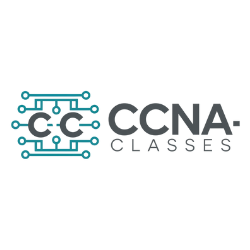Getting ready for the CCNA certification exam can be a daunting task, but with a well-structured study schedule, you can tackle it with confidence. As someone who has successfully obtained the CCNA certification, I understand the importance of having a solid plan in place. In this article, I’ll share with you my tried and tested study schedule that will help you effectively prepare for the CCNA exam and increase your chances of passing on the first try.
When it comes to studying for the CCNA certification, consistency is key. It’s not about cramming all the information in a short period of time, but rather about dedicating regular time each day to study and review the material. In this article, I’ll outline a study schedule that breaks down the topics into manageable chunks, allowing you to cover all the necessary material while avoiding burnout. So, let’s dive in and create a study schedule that will set you up for success on your CCNA certification journey.
Why a Study Schedule is Important for CCNA Certification Prep
When it comes to preparing for the CCNA certification exam, having a well-structured study schedule is crucial. As someone who has successfully obtained the certification, I can confidently say that a study schedule not only helps you stay organized but also maximizes your chances of passing the exam on your first attempt.
Consistency is the key to effective preparation. Instead of cramming all the material in a short period, it’s important to study and review on a daily basis. This approach allows you to retain information better and build a solid foundation of knowledge. By allocating a fixed amount of time each day, you’ll avoid the stress and burnout that comes with last-minute cramming.
Breaking down the topics into manageable chunks is another reason why a study schedule is crucial. The CCNA certification exam covers a wide range of networking concepts, and trying to learn everything all at once can be overwhelming. By breaking it down into smaller sections and allocating specific time slots for each topic, you can approach your preparation in a systematic and organized manner.
Staying motivated throughout the preparation process can be challenging. Having a study schedule helps in this aspect as well. When you have a clear plan and set goals for each study session, it becomes easier to stay focused and motivated. You’ll have a sense of accomplishment each time you complete a section of the study schedule, which will keep you motivated to move on to the next topic.
Moreover, a study schedule allows you to track your progress effectively. By setting milestones and deadlines for yourself, you can ensure that you’re making steady progress towards your ultimate goal of passing the CCNA exam. This sense of progress and achievement will boost your confidence and keep you motivated as you see yourself getting closer to your target.
A well-structured study schedule is essential for successful CCNA certification preparation. It helps you study consistently, breaks down complex topics, keeps you motivated, and allows you to track your progress effectively. With a solid study schedule in place, you’ll be on the right track to ace the CCNA exam and kickstart your career in networking.
Setting Realistic Goals
When preparing for the CCNA certification exam, it’s important to set realistic goals to ensure a productive and effective study schedule. Here are a few tips to help you set achievable goals:
- Know Your Starting Point: Before you can set meaningful goals, it’s crucial to understand your current knowledge and skills. Take an assessment or practice exam to evaluate your strengths and weaknesses. This will provide a clear starting point and help you identify areas that require more attention.
- Break It Down: Instead of setting one big goal like “passing the CCNA exam,” break it down into smaller, manageable milestones. This will make your study schedule more structured and give you a sense of progress along the way. For example, aim to complete one chapter or topic per week.
- Be Realistic: Take into account your other commitments, such as work or family responsibilities, when setting your goals. Be honest with yourself about how much time you can realistically dedicate to studying each day or week. Overloading your schedule with unattainable goals will only lead to stress and burnout.
- Set Deadlines: Assign a specific deadline to each goal to create a sense of urgency and keep yourself accountable. Make sure the deadlines are realistic and allow for adequate time to review and reinforce your learning.
- Track Your Progress: Regularly assess your progress to stay motivated and make adjustments if needed. Celebrate each milestone you achieve and use any setbacks as learning opportunities to improve your study schedule.
Remember, setting realistic goals doesn’t mean settling for less. It’s about setting yourself up for success by being honest with yourself and creating a study schedule that is tailored to your needs and circumstances. By setting achievable goals, you’ll stay motivated, focused, and on track towards earning your CCNA certification.
Understanding the Exam Objectives
When preparing for the CCNA certification exam, it’s crucial to have a clear understanding of the exam objectives. This will not only help you focus your study efforts but also ensure that you cover all the necessary topics and skills required for the exam.
The CCNA certification exam covers a wide range of networking topics, including network fundamentals, network access, IP connectivity, IP services, security fundamentals, automation, and programmability. Each of these domains has its own set of objectives that you need to master.
To gain a comprehensive understanding of the exam objectives, it’s recommended to review the official Cisco CCNA certification exam blueprint. This document outlines the specific topics and subtopics that you will be tested on. It also provides valuable insights into the percentage of questions allocated to each domain, allowing you to allocate your study time accordingly.
By focusing on the exam objectives, you can prioritize your study efforts and ensure that you allocate sufficient time to each domain. This approach helps you avoid the common mistake of spending too much time on one topic while neglecting others. It also ensures that you have a well-rounded knowledge base, which is essential for success in the exam.
Remember, understanding the exam objectives is just the first step. You also need to develop a study plan that covers these objectives in a systematic manner. This means breaking down the topics into manageable chunks and allocating dedicated study time for each one. By doing so, you can effectively cover all the necessary material and build a solid foundation of knowledge for the exam.
In the next section, I’ll share some tips on how to create an effective study schedule that aligns with the exam objectives. But before we move on, it’s important to emphasize the significance of understanding the exam objectives. By thoroughly covering the required topics and skills, you’ll be better equipped to confidently tackle the CCNA certification exam. So, let’s dive into creating a study schedule that works.
Breaking Down the Study Material
When preparing for the CCNA certification exam, it’s important to carefully break down the study material. This approach helps in effectively comprehending and retaining the vast amount of information covered in the exam. Here’s how I structured my study material to tackle the CCNA topics efficiently:
- Divide and conquer: I divided the CCNA syllabus into smaller, manageable chunks. Breaking down the material into specific topics allowed me to focus on one area at a time. This approach not only made studying more organized but also helped me to grasp the concepts more effectively.
- Allocate study time: By allocating dedicated study time for each topic, I ensured that I gave enough attention to all the subject areas. This prevented me from spending too much time on one topic while neglecting others. Aim to spend an equal amount of time on each topic to maintain a balanced understanding of the entire syllabus.
- Create a study plan: I developed a study plan that aligned with the exam objectives. This involved creating a schedule that covered all the relevant topics, ensuring that I had sufficient time to study each subject area. A well-structured study plan keeps you on track and helps you make progress systematically.
- Prioritize based on exam weightage: Understanding the weightage of each topic in the exam is crucial. The official Cisco CCNA certification exam blueprint provides valuable information about the relative importance of different subjects. I focused more on the topics with higher weightage to have a solid foundation in those areas.
- Review and revise: Regularly reviewing and revising the material is essential to reinforce your understanding of the topics. After completing a particular chapter or topic, I made it a point to review it periodically to refresh my memory. This approach not only helped me retain the information but also identified any gaps in my knowledge that needed to be addressed.
By breaking down the study material, allocating study time, creating a study plan, prioritizing topics, and regularly reviewing, I was able to effectively navigate through the CCNA syllabus. This systematic approach not only ensured comprehensive coverage of the material but also helped me to stay organized and motivated throughout my preparation.
Day-by-Day Study Schedule
When it comes to preparing for the CCNA certification exam, having a well-structured study schedule is essential. It not only helps you stay organized but also ensures that you cover all the necessary topics and skills. In this section, I will guide you through my recommended day-by-day study schedule that has proven to be effective for many aspiring CCNA candidates like yourself.
Day 1: Familiarization
- Spend the first day getting familiar with the exam objectives and the official Cisco CCNA certification exam blueprint.
- Take some time to understand the format of the exam, the number of questions, and the time duration.
- Familiarize yourself with the different domains and topics that will be covered in the exam.
Days 2-10: Networking Fundamentals
- Start by focusing on the networking fundamentals domain, as it forms the foundation of the CCNA certification.
- Allocate sufficient time each day to study and review the material related to networking fundamentals.
- This domain covers topics like OSI model, TCP/IP protocols, IP addressing, subnetting, and basic router and switch configuration.
Days 11-17: LAN Switching Technologies
- Move on to the LAN switching technologies domain, which focuses on topics like VLANs, STP, EtherChannel, and inter-VLAN routing.
- Dedicate specific study sessions each day to explore and delve deeper into these important LAN switching concepts.
Days 18-24: Routing Technologies
- Shift your focus to the routing technologies domain, which covers topics like routing protocols (OSPF, EIGRP), IPv6, and WAN technologies.
- Allocate dedicated study time each day to understand and practice implementing these routing technologies.
Days 25-31: Infrastructure Services
- In this domain, you will learn about DHCP, NAT, SNMP, NTP, and other infrastructure services.
- Spend time each day studying and understanding how these services work in a network environment.
- Now, it’s time to dive into the infrastructure security domain, which covers topics like ACLs, AAA, secure device management, and VPN technologies.
- Allocate dedicated study sessions each day to grasp the concepts and best practices for securing network infrastructure.
- Lastly, focus on the infrastructure management domain, which includes topics like network monitoring, device management, and network troubleshooting.
- Spend time each day understanding how to effectively manage and
Additional Tips for Effective Studying
When it comes to preparing for the CCNA certification exam, having a well-structured study schedule is essential. However, there are a few additional tips that can further enhance your studying effectiveness. Here are some of my suggestions:
- Create a designated study space: Find a quiet and comfortable place where you can concentrate without distractions. This can be a dedicated home office, a local library, or even a quiet coffee shop. Having a designated study space will help you stay focused and minimize interruptions.
- Utilize effective study techniques: Everyone learns differently, so it’s crucial to find study techniques that work best for you. Some popular techniques include flashcards for memorization, practice exams for assessing your knowledge, and explaining concepts to someone else to solidify your understanding.
- Break down your study sessions: Instead of cramming for long hours in one sitting, break down your study sessions into smaller, manageable chunks. Research shows that shorter, focused study sessions are more effective for information retention. Aim for 30-45 minutes of intense studying followed by short breaks.
- Stay organized: Keep your study materials, notes, and resources in order. Use folders or binders to categorize different topics or domains. This organization will save you time and frustration when you need to review specific areas or revisit important concepts.
- Take care of yourself: Remember to prioritize self-care during your study journey. Get enough sleep, eat healthily, and exercise regularly. These habits will not only improve your overall well-being but also boost your cognitive function and memory recall.
- Join a study group or seek external support: Studying with others can be beneficial as you can share knowledge, discuss concepts, and clarify doubts. Consider joining a study group or seeking external support through online forums, social media groups, or even hiring a tutor if needed.
Conclusion
In order to succeed in the CCNA certification exam, it is crucial to have a well-structured study schedule. Throughout this article, I have provided a detailed day-by-day study schedule that covers all the domains and topics of the exam.
Additionally, I have shared some valuable tips to enhance your studying effectiveness. Creating a designated study space, utilizing effective study techniques, breaking down study sessions, staying organized, taking care of yourself, and seeking external support through study groups are all important strategies to consider.
By following these recommendations, you can optimize your study time and improve your overall well-being during the preparation process. Remember, success in the CCNA certification exam requires both knowledge and dedication.
So, take the time to create a study schedule that works for you, implement effective study techniques, and stay motivated throughout your journey. With the right approach and commitment, you can achieve your goal of becoming a certified CCNA professional. Good luck!





